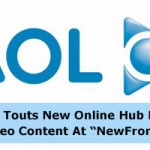
In fact, all the essentials was set up for this announcement with the release of Facebook for Android geared to act as a distribution channel for all kinds of other Android apps.
Equally, Facebook has already rolled out social app discovery for mobile web apps on Android and native apps on iOS. But some app developers have witnessed great results as their work goes viral and millions of Facebook users go check out their apps every month.
“With the latest update to Facebook for Android, we are furnishing social app discovery channels to native Android apps,” writes Facebooker Alex Wu on the company’s developer blog.
Users can now seamlessly discover native apps directly from Facebook for Android using the same social channels (Requests, Bookmarks, the News Feed, and so on) that are available on other platforms. Its availability was enabled by Facebook’s Android update last week. Thus, as you have a mobile optimized version of your app ready with Facebook Single Sign On, simply go to app settings, enable Android Native Deep Linking, and fill out the required fields. More details are available on Facebook Developers: Native App Linking for Android.

Moreover, deep linking allows developers to direct users to specific pages within their apps, instead of a landing page. Besides, developers that enable SSO for their apps can ensure that they are included in Facebook’s mobile news feed, timeline, requests, bookmarks, and search.
Wu also stated that the Facebook app for iOS already includes such capabilities, and that the Facebook Android app allows for unmasking of mobile web apps as well.
According to a recent discussion with Facebook’s mobile-developer relations team members, VentureBeat discovered that Facebook wants to become an important distribution mechanism for developers–mobile web developers, iOS developers, Android developers, everybody who makes apps for phones and tablets.
Therefore, “Whether I’m reading a newspaper article or eating a particular type of food… those types of stories are driving engagement,” said Facebook employee James Pierce in one such recent discussion at Facebook’s Silicon Valley headquarters.
“Now on mobile, of course, we allow developers to configure how the user clicks that story, where that is going to land. Is it going to launch a mobile web app, or the native app already installed on that device? Or to the marketplace where they can download that app?”
On the other hand, in a post on the Facebook developer blog, the social network touted the increased visits to iOS apps such as Pinterest, BranchOut, Diamond Dash, and Words with Friends following the launch of social app discovery for Apple devices.
More so, the post also presented developers with links to documentation on Android native linking, a tutorial video, and the Facebook Android tutorial.
Lastly, Facebook is, in a nutshell, empowering developers with as many options as possible to win more distribution and more traffic through Facebook’s own ecosystem–and shoring up its stature in the mobile world is not hurting as the company walks slowly but certainly up to its IPO later this year.


